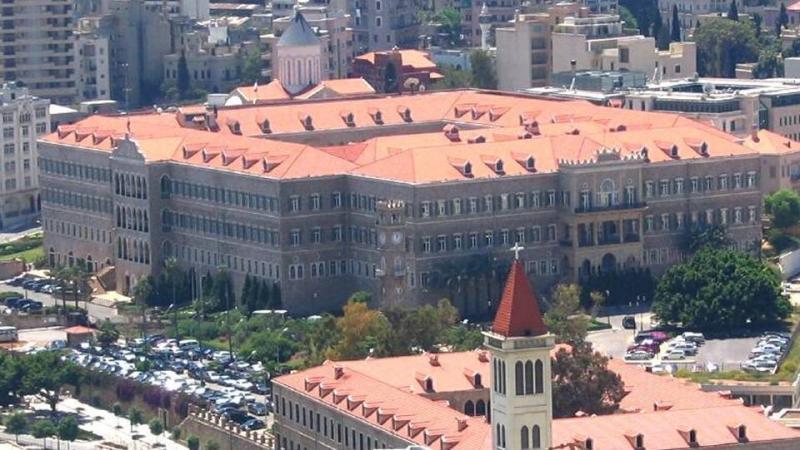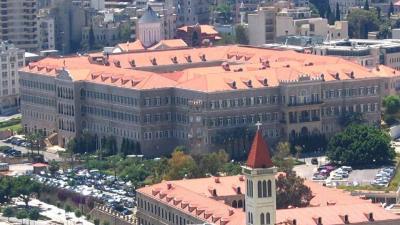The failure of President Michel Aoun to schedule a meeting with Prime Minister-designate Najib Mikati to discuss the government file indicates that matters have indeed reached a dead end. Both parties appear to be nearly convinced that a government will not be formed for the remainder of the current presidential term, especially considering that the country has already entered the orbit of the presidential elections, which are constitutionally scheduled to begin on September 1. Even foreign envoys who have visited Lebanon in the past weeks have become convinced that a government will not be established in the remaining time of President Aoun's term, as attention has shifted primarily to the presidential elections, dominating the movements of officials.
A clear indication of the lack of expectation for a government formation has been expressed by the head of the Free Patriotic Movement, MP Gebran Bassil, who has ruled out the possibility of a new government based on the available data, indicating a belief in the continuation of the caretaker government until the presidential elections.
Simultaneously, the issue of maritime border demarcation between Lebanon and Israel is witnessing accelerated progress on multiple fronts. It has been reported that the U.S. administration is leading intensive efforts that may lead to fundamental solutions and a near agreement on demarcation. It is known that U.S. global energy security advisor Amos Hochstein will visit Beirut on July 31 and August 1, during which he is expected to convey the results of his shuttle diplomacy, especially those conducted during President Joe Biden's recent visit to the region, including Tel Aviv. Sources indicate that the Lebanese diplomacy has been briefed on Hochstein's anticipated visit, where official meetings are expected to crystallize the position that will be presented to the American mediator, given Beirut's willingness to move forward on this issue until its completion.
While Lebanese official circles are optimistic about the near conclusion of a maritime border demarcation agreement that ensures Lebanon's rights to its natural resources and their extraction, Deputy Speaker Elias Bou Saab revealed positive developments achieved in this regard. It has been reported that Total has informed Lebanese officials of its readiness to resume work under the previous agreement as soon as a border demarcation agreement is reached, which has left Lebanese officials relieved regarding the trajectory of the negotiations and the serious American mediation efforts.
At the same time, the repercussions of the arrest of Bishop Musa al-Haj are still unfolding. Notable were the messages delivered by Patriarch Bechara al-Rahi on the day of solidarity with him, addressing them to Hezbollah and its affiliates. Attendees, including political and popular figures, agreed that the targeting of Bkirki will not pass as easily as some expect, and that the situation after Bishop al-Haj's arrest is not the same as before it, considering the level of sympathy with the Maronite patriarchate in confronting Hezbollah’s actions. Meanwhile, General Security Director Major General Abbas Ibrahim stated that if there were a judicial order against his father, he would not delay in its enforcement, indicating that Bishop al-Haj's arrest was made at the highest levels. According to political sources, this confrontation is expected to escalate internal tensions concerning many issues, particularly related to the presidential elections.
In this context, it has been learned that the Maronite patriarchate has ruled out any option to nominate or support the head of the Marada Movement, Sleiman Frangieh, or the head of the Free Patriotic Movement, MP Gebran Bassil, for the presidency, after Patriarch Bechara al-Rahi previously outlined the qualities sought in the future president, which do not align with either of these individuals.
Sources indicate that while waiting for the date of the first session to elect a new president to begin on September 1, the Maronite patriarchate will engage in intensive internal and external consultations to formulate a shared vision for selecting a Maronite figure who meets the specifications established by Patriarch al-Rahi, who insists that the president should come from outside the sharp political alignments, and should not pose a challenge to any party, either domestically or abroad.
It has also been reported that Arab and international diplomatic communications have commenced with Patriarch al-Rahi and Christian leaders to discuss the developments of the presidential file, as the countdown begins for Lebanon to enter the constitutional deadline for this important event on September 1.




